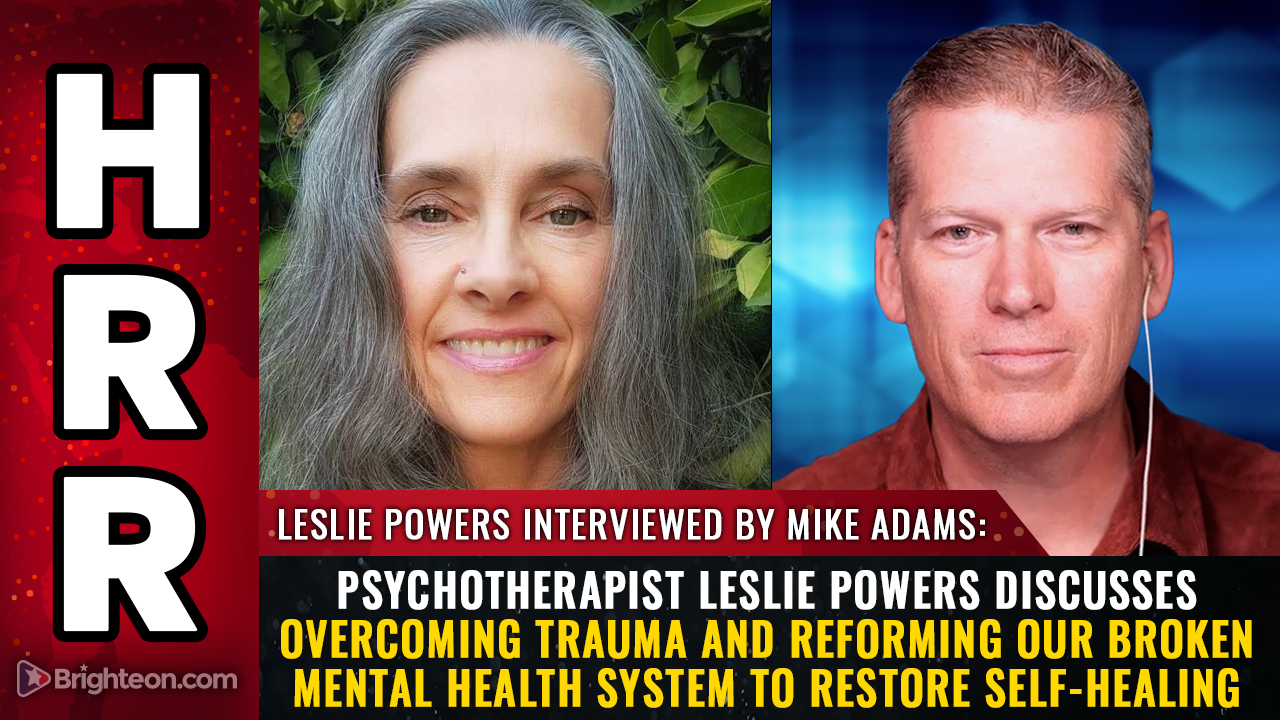Psychotherapist exposes how the mental health system fails patients and practitioners alike
By finnheartley // 2025-05-07
Tweet
Share
Copy

- Systemic Flaws: The mental health system prioritizes bureaucracy and profit over care, burdening providers with unsustainable workloads and rigid regulations that stifle innovative, patient-centered approaches.
- Provider Burnout: Clinicians face crushing caseloads, excessive paperwork, and minimal support, leading to burnout and desensitization, while insurance companies micromanage care without understanding therapeutic needs.
- Insurance Barriers: Profit-driven insurance models create obstacles for patients, requiring endless approvals and prioritizing compliance over well-being, often resulting in abrupt medication changes or denials of care.
- Dehumanizing Care: Patients are reduced to diagnoses, receiving cookie-cutter treatments that ignore individual histories, while providers lack time to build trust, fostering a culture of detachment and dependency.
- Path to Reform: Solutions include decentralizing care (community-based models), focusing on prevention (addressing trauma and social determinants), and restoring human connection by replacing fear-based compliance with collaborative partnerships.
A System Designed to Burn Out the Healers
Powers described mental health professionals as "big-hearted people" who enter the field to help others, only to be "thrown into the fire" with crushing caseloads and minimal support. In government-funded organizations, clinicians face relentless documentation demands—not for patient benefit, but to satisfy insurers and regulators. "The system is geared toward serving itself, not healing," Powers explained. Even innovative programs—like a trauma-informed youth center that integrated exercise and nature therapy—are stifled by rigid regulations. "They start with creativity and compassion, but eventually, the system boxes them in until they can’t function outside its rules."Insurance Barriers: Profit Over Care
Now in private practice, Powers witnesses firsthand how insurance companies obstruct care. Patients endure endless hoops for approval, while therapists drown in paperwork. "We’re micromanaged by entities that don’t understand therapy," she said. Worse, the fear of losing licensure looms large. Trainings for providers, she noted, are less about education and more about "threatening us with fines or jail if we misplace a form." This culture of fear trickles down to patients. Doctors, terrified of liability, overprescribe psychiatric medications or abruptly cut off long-term users—ignoring the fallout. "One elderly man was stripped of his medications overnight. He spiraled—because the system cares more about compliance than people."The Trauma of Disconnection
Powers argues that the system’s greatest failure is its "hierarchy of trauma," where both providers and patients are stripped of autonomy. Clinicians, overworked and undervalued, become desensitized—mirroring the detachment seen in police officers and ER staff. Patients, meanwhile, are reduced to diagnoses, funneled into cookie-cutter treatments that ignore their unique histories. "Healing requires relationship, safety, and self-trust," Powers emphasized. Yet the system discourages all three. Patients are conditioned to defer to "experts," while therapists, racing between 15-minute slots, lack time to listen. "We’re creating a society that doesn’t know how to trust itself."A Path Forward: Dismantling the Machine
True reform, Powers insists, requires dismantling the systemic rot:- Decentralize care: Empower community-based, holistic models (e.g., integrative health centers) free from insurance strangleholds.
- Prioritize prevention: Address childhood trauma and social determinants of health (poverty, isolation) rather than masking symptoms with pills.
- Restore humanity: Replace fear-based compliance with partnerships where patients and providers collaborate as equals.
More related stories:
Mental health experts report surge in mental illnesses from Democrat voters since Trump election victory How digital illusions erode mental health and self-worth in the age of artificial acceptance Marcia Angell’s book “The Truth About the Drug Companies” exposes how Big Pharma chooses profits over public health Sources include: Brighteon.com Healthrevealed.orgTweet
Share
Copy
Tagged Under:
environment mental health depression Big Pharma psychiatry anxiety deception psychology insanity Public Health treatments mindbodyscience badhealth goodhealth badmedicine Food and Drug Administration mind news psychological disorders mental news
You Might Also Like
Hemp seeds: Nature’s skin superfood emerges amid growing demand for natural beauty solutions
By Willow Tohi // Share
Trump signs EO banning federal funding for gain-of-function research in high-risk nations
By Ramon Tomey // Share
Israeli airstrikes destroy Sanaa Airport in Yemen
By Laura Harris // Share
The power of Aloe vera: An age-old natural medicine and superfood
By Ava Grace // Share
Recent News
U.S. and China edge toward trade talks, but sticking points remain
By avagrace // Share
EU embraces censorship over solutions as energy grid crises spark blackout fears
By willowt // Share
Google expands nuclear power investment to fuel AI data center surge
By willowt // Share









